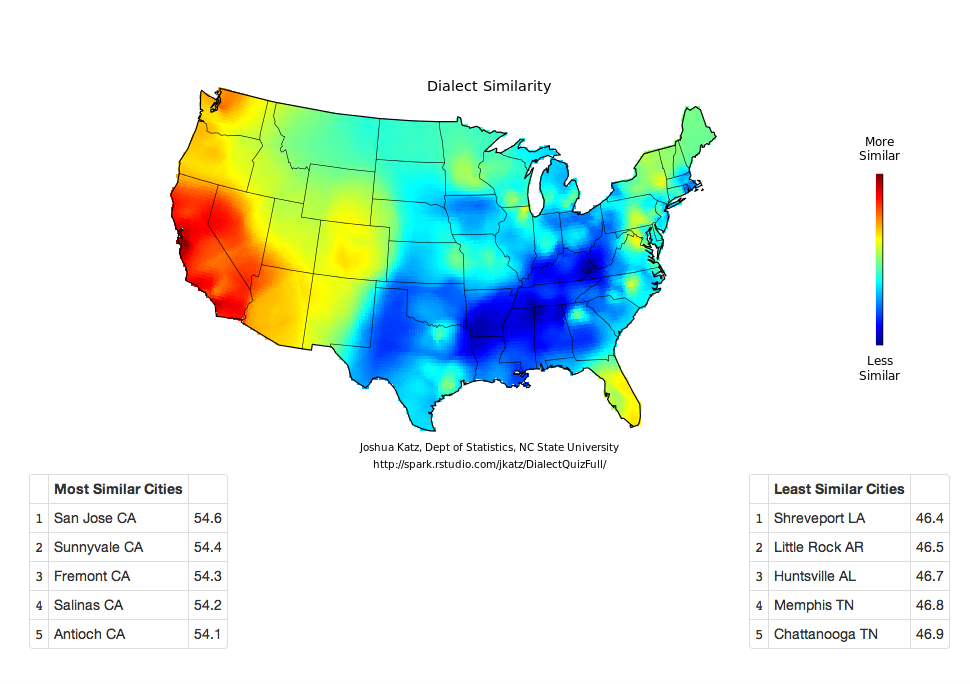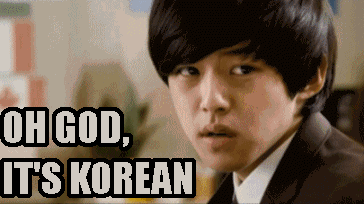A while ago I posted about Sarah Kay’s Ted Talk on Spoken Poetry.
It made me reflect on my own style of talking and how much it has been influenced by various factors probably one of the most important being I was born in California.
I spent most of my young life in California before moving to the East Coast. While I may have spent more time on the East Coast than I have lived in California, I still talk like a Californian.
Look I even got linguistic test results to prove it:

Linguistic Test
I remember when I first moved to the East Coast I thought to myself: People here sound different than the people at home.
Then I all but forgot about it after being on the East Coast for many years. Then when I was in college I took an Alternate Reality Game class. While working on a group project I mentioned to my group members that I grew up in California.
A guy in my group said, “Oh! That makes sense.”
I asked, “What do you mean?”
“You sound like you are from there.”
I was curious. “Really? How do I sound like?”
Then he seemed to get a little flustered, like he didn’t want to say I sounded like a valley girl or something. He ended up saying something along the lines of “The way your voice rises and falls sometimes, it just sounds very Californian to me…”
Hmmm. Okay then.
I never found out if he meant “You sound like you’re from California” as a good or bad thing…..
Some of the most common Californian things I say are as follows:
I say “like” waaaay more than necessary: “So I was like, I need some, like, space because I, like, feel stressed out by this, like, whole situation.”
I would be more than willing to scrap this part of my vocabulary which as I use as a filler word. Actually, I feel my time in Korea has cut down on me using this word, except in situations when I am excited and talking extremely fast to English native speakers.
I say “I know, riiiight?” whenever someone mentions something I agree with.
I say, “Totally!” and “Dude!” all the time. I have even said “DUDE” to my mom before a couple of times which makes her irate: “I am not a DUDE!” Nope, definitely not. Not sure why I say it, but it just feels normal to say it to everyone.

Dudeee
Funny story: A older Korean man at my middle school dropped his keys as he was walking down the hallway. I noticed, picked them up and then since he was so far away from me and headed downstairs, I started saying “Hey! Dude! You dropped your keys”
Of course, he didn’t turn around; thankfully another Korean teacher yelled “Seonsangnim!” which means Teacher in Korean, and he turned right around.
Later I thought about how I called him “Dude” which, if he had understood me, would had annoyed him since “Dude” is not a respectful term of address. Korea is all about titles of respect.

Overall, I like that some people can identify me as being from California. It’s my homehomehome.







.gif)
